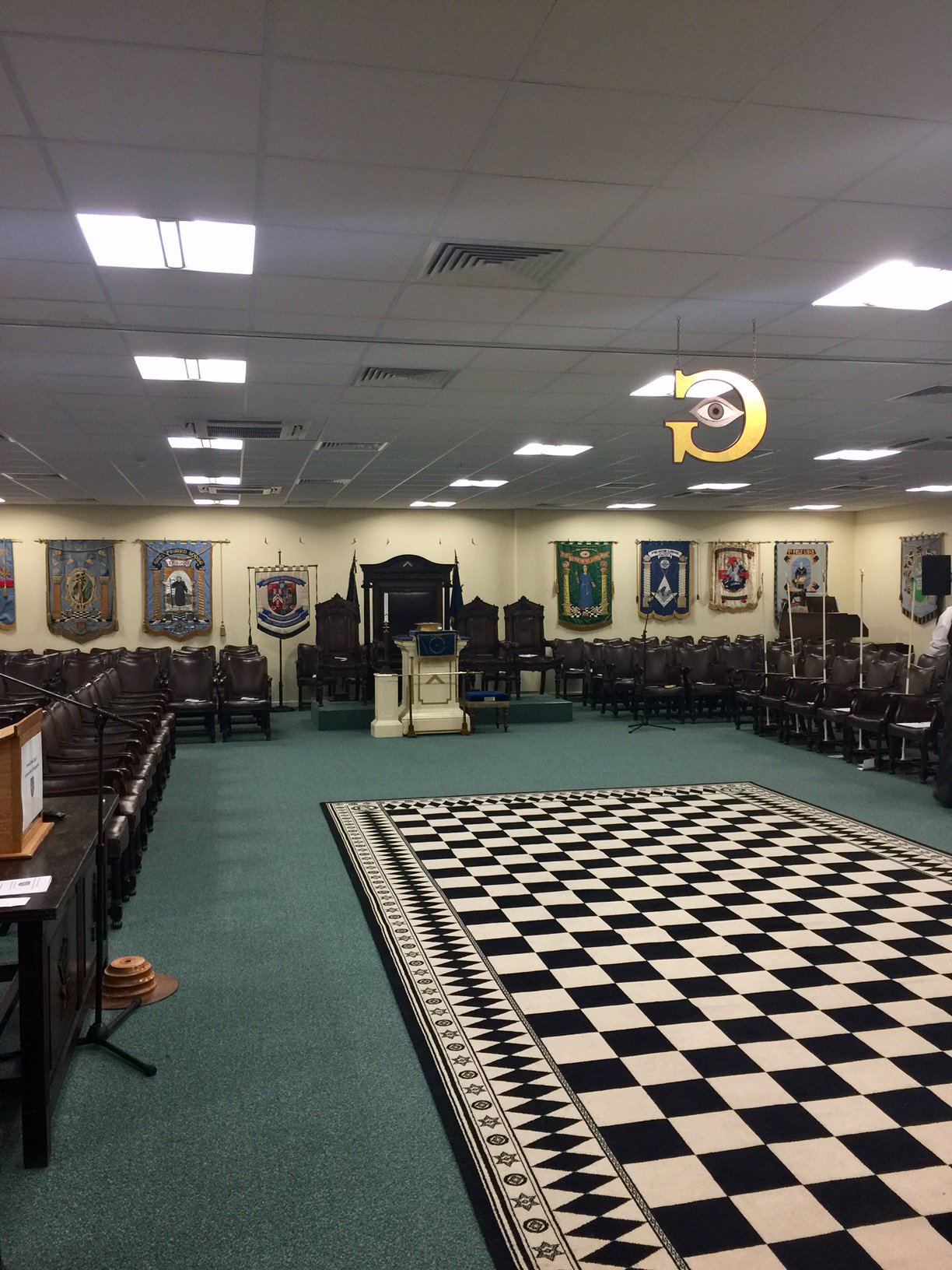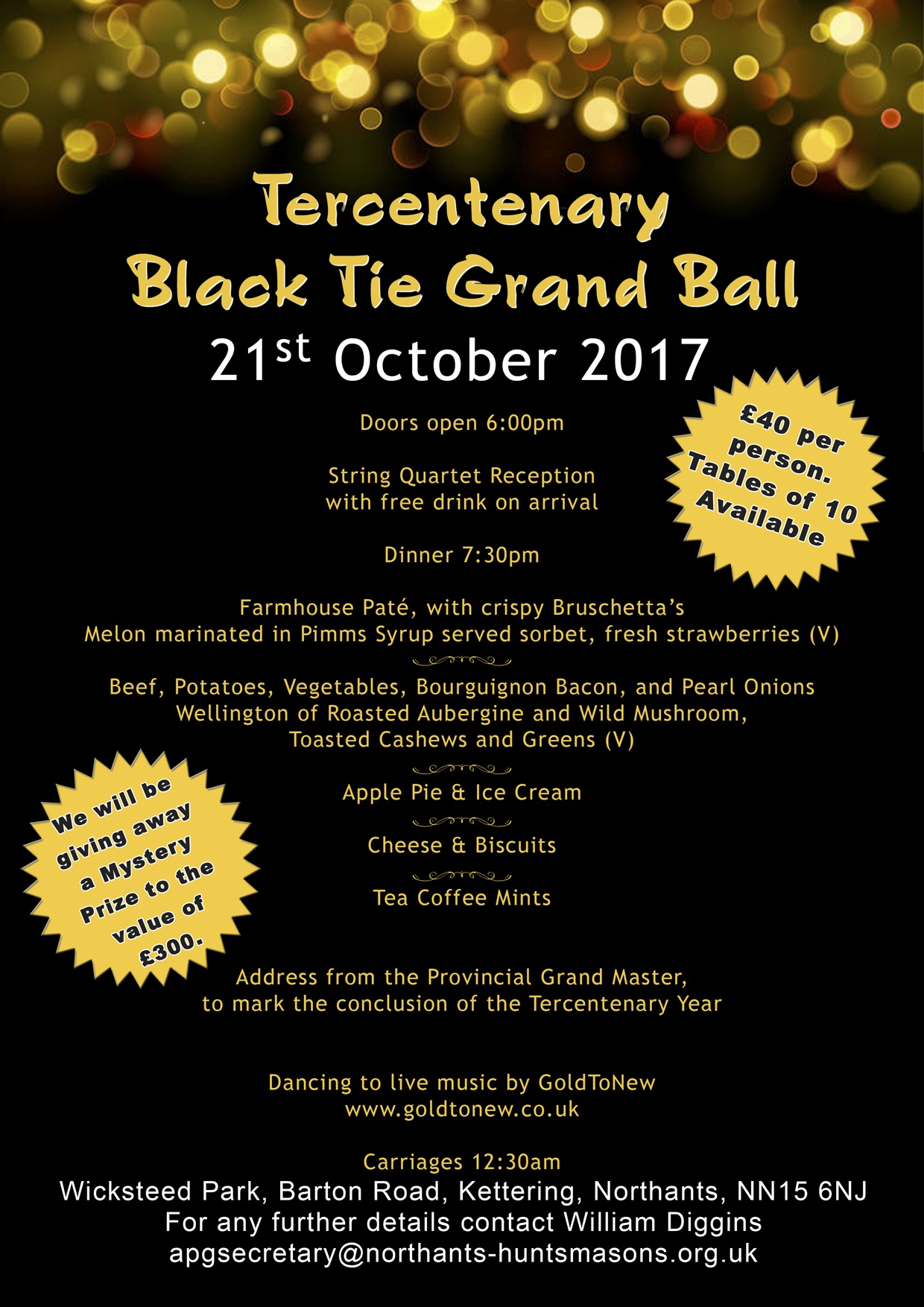Craft News
- Written by: John Fergusson
The Province has recently enjoyed a very successful annual meeting of Provincial Grand Lodge along with a similarly successful and enjoyable Past Rank Promotions’ meeting at Three Counties Lodge both of which were very well attended by Brethren from across the Province.

At the Provincial Grand Lodge meeting, our Provincial Grand Master, RW Bro Max Bayes, was delighted to appoint W Bro Martin Dimmock as Provincial Senior Grand Warden and W Bro David Butt as Provincial Junior Grand Warden and took the opportunity to thank W Bro Neil Sheppard and W Bro Chris Mullen, the outgoing Provincial Senior Grand Warden and Provincial Junior Grand Warden, for their support during a very successful year. The Provincial Grand Master then proceeded to appoint other Brethren receiving acting or first appointments to Provincial Grand Rank. The meeting was honoured with the presence of RW Bro His Honour, Richard Hone, QC, President of the Masonic Charitable Foundation who was invited by the Provincial Grand Master to address the meeting. He delivered and most informative and enlightening address on the work of the MCF.

The Three Counties Past Rank Promotions’ meeting was a great success and many Brethren who are the backbone of both their Lodges and the Province were honoured with Past Provincial Grand Rank promotions. During the course of the meeting, VW Bro James Newman, Deputy President of the Masonic Charitable Foundation was declared Master Elect of the Three Counties Lodge.
Our Provincial Grand Master addressed both meetings and updated Brethren on many matters and wished all a very enjoyable Summer. You can read his address in full by clicking here.
- Written by: Simon Key
An online public vote is to be held between the 12th of June and 31st of July 2017 to decide which local charities within the Masonic Province of Northants & Hunts will receive up to £25,000 each, as part of Freemasonry’s 300th anniversary celebrations.
Freemasons have nominated six good causes to receive the Province’s share of a special £3 million Community Awards Tercentenary Fund.
The charities that the Province has selected for the public vote are:
- Peterborough and District Riding for the Disabled
- Carers Sitter Service - Stamford
- Northampton Mencap
- Crazy Hats Breast Cancer Appeal - Northamptonshire
- The Acorn Cancer Support Group - Huntingdon
- DACT - Daventry
Anyone who wishes to vote for one of the nominated charities should visit mcf.org.uk/vote, select the Masonic Province of Northants and Hunts page and vote for the charity of their choice. All the nominated charities are guaranteed to receive a grant, but the public vote will determine the amount from £4,000 up to £25,000.
The £3 million fund, which is being distributed to mark the 300th anniversary of the formation of the first Grand Lodge in 1717, is being administered by the Masonic Charitable Foundation and will be distributed to 300 charities across the country.
The Masonic Charitable Foundation receives all of its funding from Freemasons and their families. It is estimated that half of Freemasonry’s total charitable expenditure of over £33m goes to charities that help people in communities across the country.
In relation to the vote, the Northants and Hunts Provincial Grand Master, RW Bro Max Bayes, said -
We are delighted to be able to invite the whole community to join our 300th anniversary celebrations by helping us to decide which of these excellent local charities should receive the highest award. Every vote counts, so I encourage everyone from the Northants & Hunts Province to visit the website and take part.
Local artist and Freemason, Martin Taylor, from Spelhoe 8576 has been selected by United Grand Lodge of England to have his work featured in a art exhibition running at Great Queen Street.
The United Grand Lodge of England, in partnership with the Library and Museum, will host an exhibition of emerging artists' work in June to mark this years Tercentenary celebrations. All artwork will be created on site at Freemason's Hall, with artists granted unprecedented access to the building and organisation to capture contemporary masonic life. The artworks will capture key initiatives taking place in 2017 and bring different views of Freemasonry to life through a variety of different mediums.
Martin's description of his painting follows.
"I decided to paint the building as much of the Freemasons' ideology is based around buildings and their construction as an allegory or metaphor for how we live our lives. On the day I did my study the building seemed powerful, stoic and upright with good light. I chose to be accurate in showing the blue hoarding which places the painting in a particular timeframe. The people who occupy the foreground brought the scene to life and showed it to be busy as a meeting place as well as giving a sense of scale."


Martin Taylor was born in 1954 and is based in Northamptonshire. He studied at the Ealing School of Art, Wimbledon School of Art and Goldsmith’s College. Martin’s work reflects his love of nature, played out in exquisitely detailed studies of the countryside surrounding his studio, a converted stable on a farm. Every season brings fresh inspiration, and to achieve the precision and focus so characteristic of his work Martin paints ‘en plein air’, returning to the same position for weeks at a time even in deepest winter. The combination of intricate detail and careful composition in his work celebrates nature on every scale, from the twigs on the forest floor to the clouds skimming the vast skies. Martin also pays the same attention to detail in his representations of buidings and townscapes.
Martin works in oil and watercolour and continues to practice the art of drawing, through studies and the use of the sketchbook.
Taylor has won two RWS (Royal Watercolour Society) awards: the Chris Beetles award (1988) and the Jeffrey Archer award in (1989). He has shown at the Royal Academy, and had numerous dedicated exhibitions in Northamptonshire and London, and is widely collected in the UK and USA. Martin Taylor is currently represented by Gladwell & Pattersons, 5. Beauchamps Place, Knightsbridge London.


